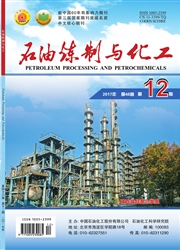

 中文摘要:
中文摘要:
In recent decades, a growing worldwide trend of developing the biodegradable lubricants has been prevailing to form a specific field of green chemistry and green engineering. Enhancement of biodegradability of unreadily biodegradable petroleum-based lubricants has as such become an urgent must. For over a decade the authors have been focusing on the improvement of biodegradability of unreadily biodegradable lubricants such as petroleum-based lubricating oils and greases. A new idea of lubricant biodegradation enhancer was put forward by the authors with the aim to stimulate the biodegradation of unreadily biodegradable lubricants by incorporating the enhancer into the lubricants in order to turn the lubricants into greener biodegradable ones and to help in situ bioremediation of lubricant-contaminated environment. This manuscript summarizes our recent efforts relating to the chemistry and technology of biodegradation enhancers for lubricants. Firstly, the chemistry of lubricant biodegradation enhancers was designed based on the principles of bioremediation for the treatment of hydrocarbon contaminated environment. Secondly, the ability of the designed biodegradation enhancers for increasing the biodegradability of unreadily biodegradable industrial lubricants was investigated through biodegradability evaluation tests, microbial population analysis, and biodegradation kinetics modeling. Finally, the impact of biodegradation enhancers on some crucial performance characteristics of lubricants such as lubricity and oxidation stability was tested via tribological evaluation and oxidation determinations. Our results have shown that the designed chemistry of nitrogenous and/or phosphorous compounds such as lauroyl glutamine, oleoyl glycine, oleic diethanolamide phosphate and lauric diethanolamide borate was outstanding in boosting biodegradation of petroleum-based lubricants which was ascribed to increase the microbial population and decrease the oil-water interfacial tension during the biodegradation process. Lubricant
 英文摘要:
英文摘要:
In recent decades, a growing worldwide trend of developing the biodegradable lubricants has been prevailing toform a specific field of green chemistry and green engineering. Enhancement of biodegradability of unreadily biodegradablepetroleum-based lubricants has as such become an urgent must. For over a decade the authors have been focusing on the improvementof biodegradability of unreadily biodegradable lubricants such as petroleum-based lubricating oils and greases. Anew idea of lubricant biodegradation enhancer was put forward by the authors with the aim to stimulate the biodegradationof unreadily biodegradable lubricants by incorporating the enhancer into the lubricants in order to turn the lubricants intogreener biodegradable ones and to help in situ bioremediation of lubricant-contaminated environment. This manuscript summarizesour recent efforts relating to the chemistry and technology of biodegradation enhancers for lubricants. Firstly, thechemistry of lubricant biodegradation enhancers was designed based on the principles of bioremediation for the treatmentof hydrocarbon contaminated environment. Secondly, the ability of the designed biodegradation enhancers for increasingthe biodegradability of unreadily biodegradable industrial lubricants was investigated through biodegradability evaluationtests, microbial population analysis, and biodegradation kinetics modeling. Finally, the impact of biodegradation enhancerson some crucial performance characteristics of lubricants such as lubricity and oxidation stability was tested via tribologicalevaluation and oxidation determinations. Our results have shown that the designed chemistry of nitrogenous and/or phosphorouscompounds such as lauroyl glutamine, oleoyl glycine, oleic diethanolamide phosphate and lauric diethanolamideborate was outstanding in boosting biodegradation of petroleum-based lubricants which was ascribed to increase the microbialpopulation and decrease the oil-water interfacial tension during the biodegradation process. Lubricants doped with the
 同期刊论文项目
同期刊论文项目
 同项目期刊论文
同项目期刊论文
 期刊信息
期刊信息
